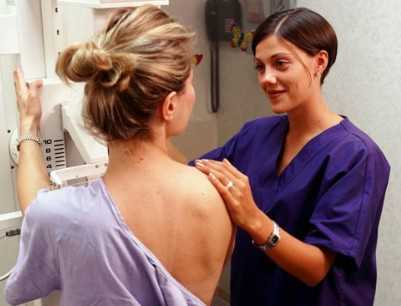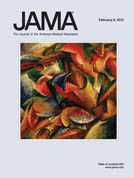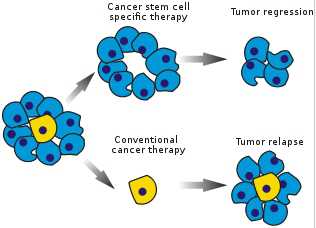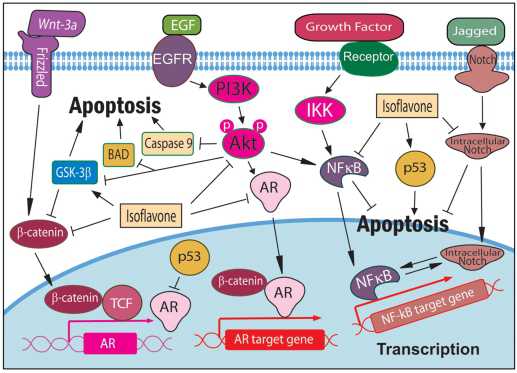JAMA:乳腺癌绝经患者 年龄越大死亡风险越高
2012-02-15 MedSci MedSci原创
除了各种临床上常用到的经典的肿瘤相关预后因子外,国内外研究人员一直认为:肿瘤患者的个体体征也可能会影响乳腺癌的发展。 为了研究激素受体阳性的患有乳腺癌绝经的女性患者,年龄与乳腺癌病情发展结果两者之间的联系,Willemien van de Water博士等科学家对他莫西芬依西美坦佐剂在不同民族间的随机临床实验(TEAM)所纳入的9766例患者进行了相关分析研究。相关研究论文发表在2 月8日JAM

除了各种临床上常用到的经典的肿瘤相关预后因子外,国内外研究人员一直认为:肿瘤患者的个体体征也可能会影响乳腺癌的发展。
为了研究激素受体阳性的患有乳腺癌绝经的女性患者,年龄与乳腺癌病情发展结果两者之间的联系,Willemien van de Water博士等科学家对他莫西芬依西美坦佐剂在不同民族间的随机临床实验(TEAM)所纳入的9766例患者进行了相关分析研究。相关研究论文发表在2 月8日JAMA杂志上。
2001年1月份,TEAM实验正式开始进行,实验研究一直持续到2006年1月份才结束。杂在这项研究中,研究人员根据就诊时乳腺癌患者的年龄,将这些受试者分为3组,分别是年龄小于65岁组(样本量n=5349),年龄介于65至74岁组(n=3060),年龄大于75岁组(n=1357)。
工作者首先统计了乳腺癌患者死亡率结果,其次还统计了引发乳腺癌患者死亡的原因以及患者乳腺癌复发的概率。
结果表明:在平均为5.1年的随访时期内,约有1043名乳腺癌患者出现死亡。各组乳腺癌患者组的死亡率与组内总死亡率的比值随着年龄的降低而呈现递减的趋势,65岁以下组死亡率为78%,介于65至74岁组死亡率为56%,年龄大于75岁组死亡率是36%。
然而,在多变量分析结果中上述趋势出现了变化:与65岁以下组相比,乳腺癌患者死亡率随着年龄的增大而呈现上升趋势。由此,研究人员下结论称:对于激素受体阳性的患有乳腺癌绝经的女性患者而言,年龄越大,其死于乳腺癌的可能性就越大。
Association Between Age at Diagnosis and Disease-Specific Mortality Among Postmenopausal Women With Hormone Receptor–Positive Breast Cancer
Willemien van de Water, MD;Christos Markopoulos, MD, PhD;Cornelis J. H. van de Velde, MD, PhD; et al.
Context In addition to classic tumor-related prognostic factors, patient characteristics may be associated with breast cancer outcome.
Objective To assess the association between age at diagnosis and breast cancer outcome in postmenopausal women with hormone receptor–positive breast cancer.
Design, Setting, and Patients Study analysis of 9766 patients enrolled in the TEAM (Tamoxifen Exemestane Adjuvant Multinational) randomized clinical trial between January 2001 and January 2006. Age at diagnosis was categorized as younger than 65 years (n=5349), 65 to 74 years (n=3060), and 75 years or older (n=1357).
Main Outcome Measures Primary end point was disease-specific mortality; secondary end points were other-cause mortality and breast cancer relapse.
Results During median follow-up of approximately 5.1 years, there were a total of 1043 deaths. Disease-specific mortality, as a proportion of all-cause mortality, decreased with categorical age group (78% [<65 years], 56% [65-74 years], and 36% [≥75 years]; P < .001). In multivariable analyses, compared with patients younger than 65 years, disease-specific mortality increased with age for patients aged 65 to 74 years (hazard ratio [HR], 1.25; 95% CI, 1.01-1.54); and patients aged 75 years or older (HR, 1.63; 95% CI, 1.23-2.16) (P < .001). Similarly, breast cancer relapse increased with age for patients aged 65-74 years (HR, 1.07; 95% CI, 0.91-1.25 and patients aged 75 years or older (HR, 1.29; 95% CI, 1.05-1.60) (P = .06). Other-cause mortality increased with age in patients aged 65 to 74 years (HR, 2.66; 95% CI, 1.96-3.63) and patients aged 75 years or older (HR, 7.30; 95% CI, 5.29-10.07) (P < .001).
Conclusion Among postmenopausal women with hormone receptor–positive breast cancer, increasing age was associated with a higher disease-specific mortality.
本网站所有内容来源注明为“梅斯医学”或“MedSci原创”的文字、图片和音视频资料,版权均属于梅斯医学所有。非经授权,任何媒体、网站或个人不得转载,授权转载时须注明来源为“梅斯医学”。其它来源的文章系转载文章,或“梅斯号”自媒体发布的文章,仅系出于传递更多信息之目的,本站仅负责审核内容合规,其内容不代表本站立场,本站不负责内容的准确性和版权。如果存在侵权、或不希望被转载的媒体或个人可与我们联系,我们将立即进行删除处理。
在此留言











#死亡风险#
90
#绝经#
73